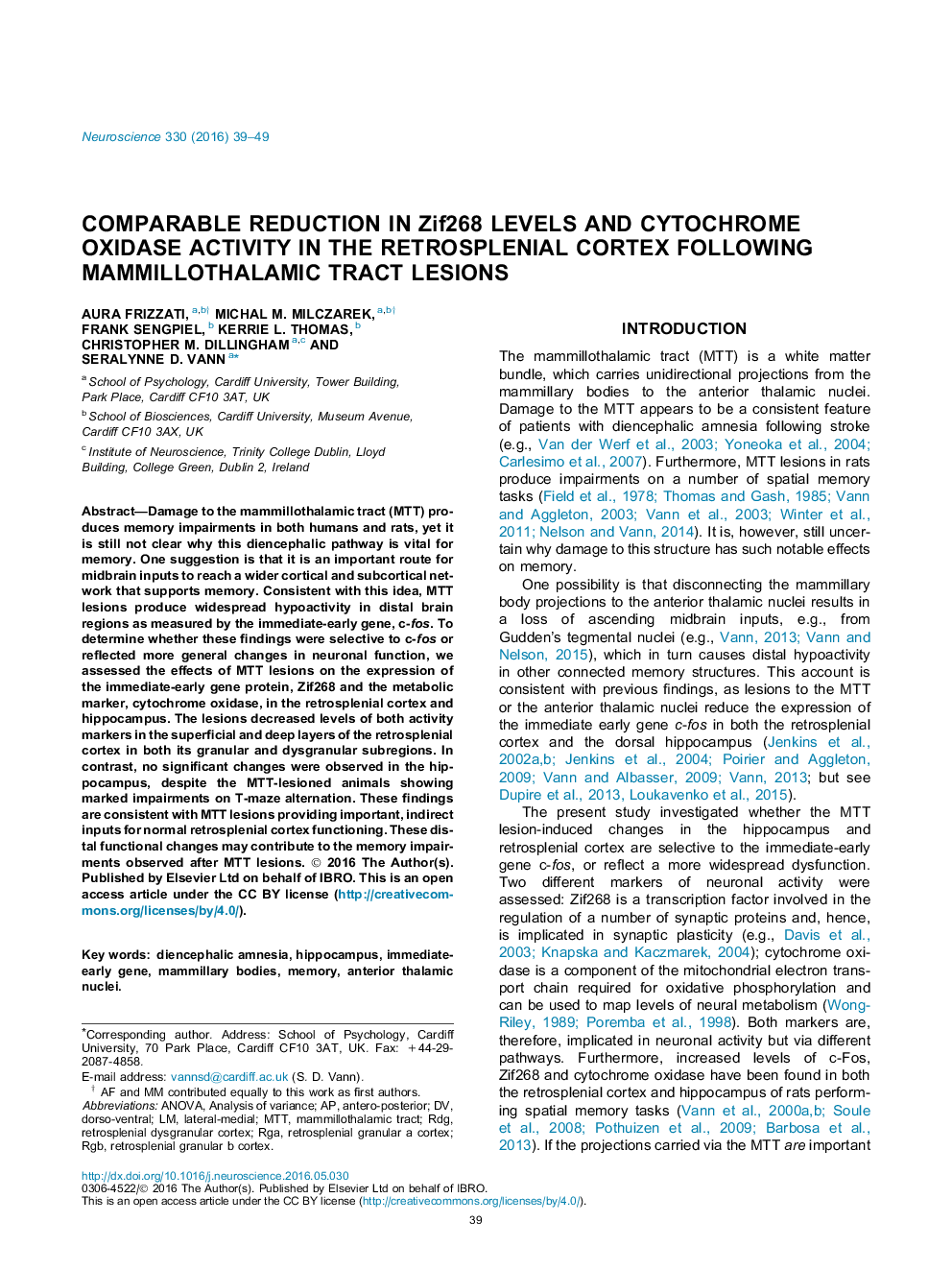| Article ID | Journal | Published Year | Pages | File Type |
|---|---|---|---|---|
| 6270913 | Neuroscience | 2016 | 11 Pages |
â¢Mammillothalamic tract lesions impaired T-maze alternation performance.â¢Mammillothalamic tract lesions reduced Zif268 levels in retrosplenial cortex.â¢Mammillothalamic tract lesions reduced cytochrome oxidase in retrosplenial cortex.â¢No changes were found in the dorsal hippocampus.â¢These distal changes may contribute to the memory impairments.
Damage to the mammillothalamic tract (MTT) produces memory impairments in both humans and rats, yet it is still not clear why this diencephalic pathway is vital for memory. One suggestion is that it is an important route for midbrain inputs to reach a wider cortical and subcortical network that supports memory. Consistent with this idea, MTT lesions produce widespread hypoactivity in distal brain regions as measured by the immediate-early gene, c-fos. To determine whether these findings were selective to c-fos or reflected more general changes in neuronal function, we assessed the effects of MTT lesions on the expression of the immediate-early gene protein, Zif268 and the metabolic marker, cytochrome oxidase, in the retrosplenial cortex and hippocampus. The lesions decreased levels of both activity markers in the superficial and deep layers of the retrosplenial cortex in both its granular and dysgranular subregions. In contrast, no significant changes were observed in the hippocampus, despite the MTT-lesioned animals showing marked impairments on T-maze alternation. These findings are consistent with MTT lesions providing important, indirect inputs for normal retrosplenial cortex functioning. These distal functional changes may contribute to the memory impairments observed after MTT lesions.
